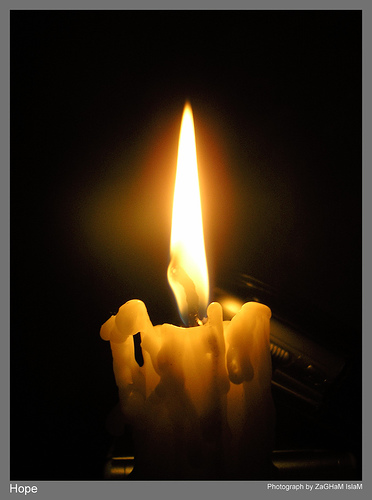What would you say if someone gave you the opportunity to eliminate unnecessary worry and anxiety from your life? I and 45 other people from CLE jumped at the chance to get away for a weekend and explore our relationship with fear, anxiety and faith. Our intent was to apply the principle of aliveness and practice being fully present and authentically engaged in the here and now. My expectation was that if we were able to improve our abilities to stay conscious we would experience more peace and joy in our lives.
What do you find yourself worrying most about? Is it the well being of your children, your relationship with your spouse, finances, the future, being alone, disappointing others, not being accepted, saying no, displeasing God? We all have anxiety; however, change can happen when we start recognizing the common themes of what we worry about. Usually, our anxiety is related to things we fear in the future or regret in the past.
I am operating from the assumption that one of our primary feelings is fear. When we fail to address our fear we experience anxiety. This unnecessary worry and anxiety are the result of regretful reflection as well as fearful anticipation. Worry and anxiety tempt us to leave our experience of the here and now, focusing instead on what John Stevens refers to as fantasy. Stevens says that fantasy activity includes, “All mental activities beyond present awareness of ongoing experience: All explaining, imagining, interpreting, guessing, thinking, comparing, planning, remembering the past, anticipating the future, etc.” (Stevens, 1971, p. 6)
In response to Stevens, we decided to be mindful of our awareness of the outside world, what we experience with our senses, and awareness of our inside world, what we feel from inside our skin. Unlike our fantasies, these two areas of awareness we know exist. Most often what we make up might happen in the future rarely happens. We made it a point to label any mental activity beyond our present awareness as fantasy. We learned that the purpose of fantasy was to distract us from the truth of our experience in the moment. We saw that fantasy intensified anxiety.
I had a powerful opportunity to practice what we were learning on Saturday night at the retreat. After an amazing day of learning and growing, I was teaching about the relationship between fear and faith. I was excited and in awe at the depth and genuineness of the work being done by the participants. Unexpectedly, one of the people attempted to make a joke at my expense. The room went quiet and I was completely caught off guard, feeling scared, hurt and angry. My first impulse was to ignore the slight and act like it never happened. My next thought was revenge—how could I pay him back!
Instead, I stayed with myself, expressing my hurt, embarrassment and anger. I asked him to look at what he was feeling in the moment and why he might want to embarrass me. He was totally unprepared for my vulnerability and began looking at what was going on for him below his level of consciousness. Eventually he was able to track back and see how his hunger for attention and affirmation had been intensifying for a while. He mistakenly believed that I was in the way of him getting what he needed and the only way to get any attention was to take me down. This mistaken belief reflected unfinished business he never had been able to clear up with his father.
We are invited in Scripture to look to God for comfort when we are anxious. “Do not be anxious about anything, but in everything, by prayer and petition, with thanksgiving, present your requests to God. And the peace of God, which transcends all understanding, will guard your hearts and your minds in Christ Jesus.” (Phil 4:6-7) God offers to exchange our worry for the peace which transcends all understanding. When you notice you are anxious, track your worries and offer them up to God l in exchange for peace. Don’t stockpile fear lest it turn into worry. Use fear to motivate you to action, whether it be to freeze, fight or flee.
We also practiced applying what I call the “manna principle.” This concept conveys the idea that God’s way is to live one day at a time and I would add one moment at a time. Jesus said, “Therefore do not worry about tomorrow, for tomorrow will worry about itself. Each day has enough trouble of its own.” (Matt 6:34) Avoid the danger of trying to manage tomorrow; instead, recognize God is availing his resources for our needs in the here and now.
Each day has sufficient trouble and we need our daily portion of God’s nourishment to sustain us throughout our battles. Live every moment to the max, experience your feelings, exchange anxiety for God’s transcendent peace and exercise the courage to be your most authentic self in every moment.
Ask God for your daily portion of the manna of peace which transcends all understanding.



